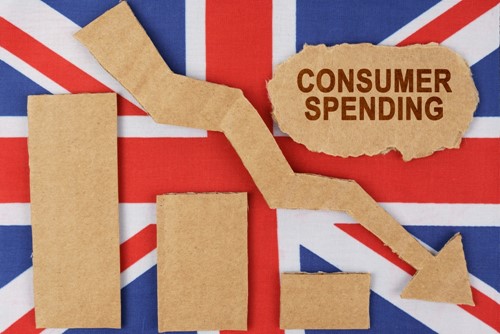Published: 12/09/2023
Britons Prefer Spending Cuts Over Debt
Introduction
In an era where credit card swipes and one-click purchases are the norm, the topic of financial responsibility has never been more relevant. In the United Kingdom, a recent study shows that the majority of Britons would rather cut back on spending than plunge into the depths of debt. This finding offers a fascinating insight into the attitudes of British citizens towards money and debt, and serves as an interesting contrast to the rising global credit culture.
The Culture of Credit
For context, the rise of consumer credit isn't just a British phenomenon; it's a global one. Modern society has made it remarkably easy to purchase what you want, when you want it, often irrespective of whether you can actually afford it. With the allure of buy-now-pay-later schemes and the prevalence of credit cards, it's no wonder that consumer debt levels are skyrocketing worldwide. But it seems Britons are bucking the trend, choosing austerity over indebtedness.
What the Data Says
The study, based on interviews with thousands of individuals across various demographics in the UK, found that over 60% would rather cut down on luxuries, defer purchases, or even dip into savings rather than take out loans or rack up credit card debt. This sentiment was uniform across various age groups, although it was notably stronger among older participants.
The Psychology Behind the Choice
One possible explanation for this trend could be deeply rooted cultural values. British culture traditionally promotes a "save for a rainy day" philosophy, advocating financial prudence and skepticism towards 'easy money' or credit. Another factor may be the collective memory of economic crises, from the recession of 2008 to the impact of Brexit, that have made Britons more cautious about accumulating debt.
The Impact on Personal Finance
The implications of this study could be profound, both for individuals and financial institutions. For consumers, the trend toward reducing spending rather than accruing debt means healthier financial portfolios, lower stress levels, and a greater sense of financial freedom.
For financial institutions, the results might be a mixed bag. On one hand, lower debt levels mean less risk associated with loan defaults. On the other, it also means fewer customers engaging with credit products, which could impact the profitability of these financial instruments.
The Bigger Picture
Looking beyond the UK, it's worth asking whether this approach could be beneficial if applied more broadly. Many countries are grappling with unprecedented levels of consumer debt, affecting both individual well-being and national economic stability. If the British example proves anything, it’s that a conservative approach to spending doesn't necessarily limit one’s quality of life; rather, it provides a more stable and secure financial future.
Conclusion
The recent data on Britons’ aversion to debt serves as an interesting reflection of cultural values, past experiences, and possible future trends. As the world navigates uncertain economic times, the British example may serve as a reminder that financial conservatism isn't about denying oneself luxuries, but about making more sustainable choices for a stable future. Whether or not this trend will continue or spread to other parts of the world remains to be seen, but it certainly provides food for thought in our current 'buy now, worry later' culture.
Last updated: 14/09/2023



